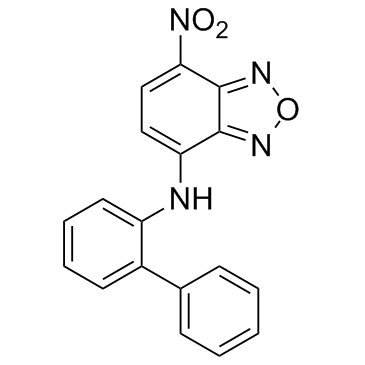10074-G5

10074-G5 structure
|
Common Name | 10074-G5 | ||
|---|---|---|---|---|
| CAS Number | 413611-93-5 | Molecular Weight | 332.313 | |
| Density | 1.4±0.1 g/cm3 | Boiling Point | 538.6±60.0 °C at 760 mmHg | |
| Molecular Formula | C18H12N4O3 | Melting Point | N/A | |
| MSDS | Chinese USA | Flash Point | 279.5±32.9 °C | |
| Symbol |

GHS06 |
Signal Word | Danger | |
|
Inhibition of c-MYC with involvement of ERK/JNK/MAPK and AKT pathways as a novel mechanism for shikonin and its derivatives in killing leukemia cells.
Oncotarget 6 , 38934-51, (2015) Leukemia remains life-threatening despite remarkable advances in chemotherapy. The poor prognosis and drug resistance are challenging treatment. Novel drugs are urgently needed. Shikonin, a natural naphthoquinone, has been previously shown by us to be particu... |
|
|
In vivo quantification and perturbation of Myc-Max interactions and the impact on oncogenic potential.
Oncotarget 5(19) , 8869-78, (2014) The oncogenic bHLH-LZ transcription factor Myc forms binary complexes with its binding partner Max. These and other bHLH-LZ-based protein-protein interactions (PPI) in the Myc-Max network are essential for the physiological and oncogenic activities of Myc. We... |
|
|
Structurally diverse c-Myc inhibitors share a common mechanism of action involving ATP depletion.
Oncotarget 6 , 15857-70, (2015) The c-Myc (Myc) oncoprotein is deregulated in a large proportion of diverse human cancers. Considerable effort has therefore been directed at identifying pharmacologic inhibitors as potential anti-neoplastic agents. Three such groups of small molecule inhibit... |
|
|
Targeting of the MYCN protein with small molecule c-MYC inhibitors.
PLoS ONE 9(5) , e97285, (2014) Members of the MYC family are the most frequently deregulated oncogenes in human cancer and are often correlated with aggressive disease and/or poorly differentiated tumors. Since patients with MYCN-amplified neuroblastoma have a poor prognosis, targeting MYC... |